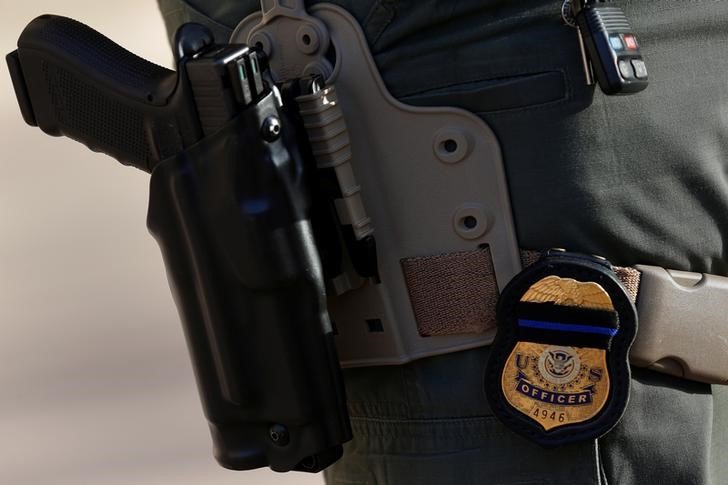Sept 22 – The South Carolina Supreme Court declined to make essential changes to policing last week, when it overruled a lower court’s decision that the state asset forfeiture law is unconstitutional and punted the matter of reform to the legislature.
Asset forfeiture laws allow police to seize money, property and homes without ever charging the owners with a crime. The point, at least theoretically, is to seize the instruments of criminal activity as a deterrent and punishment. They exist in almost every state, despite criticism from across the political spectrum, including by “tough-on-crime” conservatives who say it’s unfair for the government to levy punishment before even filing criminal charges and without due process.
South Carolina’s law allows police and prosecutors to keep 95% of forfeiture proceeds, with only negligible reporting requirements, according to the Sept. 14 opinion by Justice George James. The remaining 5% goes to the state general fund.
The statute also flips the usual courtroom burden on its head. Law enforcement doesn’t have to prove the money or property is truly connected to a crime, while owners have to prove that it was acquired innocently. Citizens are nominally entitled to a hearing, but the law only requires prosecutors to begin that process within a “reasonable” but undefined time frame.
Travis Lee Green challenged the law in 2017 after a police task force found drugs and seized $20,771 during a search of his Myrtle Beach home. Green has since been sentenced to prison for drug dealing.
In August 2019, Fifteenth Judicial Circuit court judge Steven John ruled that the statute violates the state and federal constitution’s due process and excessive fines provisions. The forfeiture scheme is unconstitutional because it has a built-in profit incentive, doesn’t provide adequate judicial review, and requires the accused to prove their innocence, John held.
That ruling comports with growing bipartisan recognition that civil forfeiture doesn’t provide constitutionally adequate process, fueled by decades of scandalous headlines about law enforcement enriching their own departments and officials by unjustly targeting vulnerable, often innocent people.
Indeed, the “abuses of civil asset forfeiture are well-known, well-documented, and well-ridiculed,” lawyer Stephen Moss wrote in a 2019 law review article.
A 2020 poll by YouGov and the Institute for Justice found that 59% of Americans opposed allowing police to use forfeited assets themselves. Another 2016 survey by the Cato Institute found that 84% opposed seizures before someone is convicted of a crime.
Conservative U.S. Supreme Court justice Neil Gorsuch criticized asset forfeiture as an “extravagant punishment” in a 2018 decision. Justice Clarence Thomas said outright in a 2017 case that modern civil forfeiture schemes are likely unconstitutional. And, the Supreme Court decided in 2019 that constitutional limitations on excessive fines apply to state forfeiture laws.
That ruling prompted the Fifteenth Circuit to suspend forfeitures until the legislature “can address and implement” the Supreme Court’s holding, John wrote in a February 2019 order, months before his final ruling in Green’s case.
A legislative task force suggested reforms, but a bill that initially got widespread support ultimately failed, the Greenville Post and Courier reported on September 14.
The same story is playing out on the national level.
There is much bipartisan agreement on the need for forfeiture reform, even in our deeply divided Congress (National Democratic and Republican platforms in 2016 both endorsed forfeiture reform, for example.). Nonetheless, multiple recent proposals have failed, apparently because of opposition from national law enforcement groups.
That said, at least 37 states and the District of Columbia have enacted forfeiture reforms since 2014, and sixteen now ban forfeiture before a criminal conviction, according to the Institute for Justice. Nancy Mace, a Republican U.S. House member from South Carolina, also raised concerns about forfeiture abuses this past May.
Still, the state Supreme Court decided 4-1 to revive the forfeiture scheme, saying that it is the legislature’s role to reform or abolish the law.
The reality, of course, is that courts routinely modify – even nullify — unconstitutional laws. The South Carolina Supreme Court’s ruling abdicates its responsibility to serve as a check on the legislature by ensuring its enactments pass constitutional muster.
The court didn’t respond to requests for comment. Jimmy Richardson, the Fifteenth Judicial Circuit prosecutor whose offices defended the law, also didn’t respond to my questions.
Like many other states, forfeiture reform became an issue in South Carolina after news investigations revealed rampant and egregious abuses.
The latest, in 2019, was the first-ever comprehensive forfeiture investigation for an entire state, experts told the Greenville News in January that year. The newspaper reviewed all civil asset forfeiture cases from 2014-2016 and contacted every involved law enforcement agency.
Police seized more than $17 million during the three-year period, and more than half of seizures were for less than $1,000, the Greenville News reported in February 2019.
There were no arrests in 19% percent of cases. One of every five people targeted was never convicted, and most people simply gave up their right to contest the forfeiture.
The asset forfeitures also were deeply biased. Black men represent 13% of South Carolina’s population, yet 65% of those targeted for forfeiture, the Greenville News found. And, white people were twice as likely to get their money back than Black folks.
The high court simply discounted this evidence, and more.
The court said it couldn’t conclude that forfeiture revenues went to a special fund – even though that information appears to be a matter of public record.
It also said it couldn’t conclude that funds were used for items that police departments otherwise couldn’t afford, nor that certain programs were dependent on forfeiture money, nor that officials controlled funds with little oversight.
But South Carolina police chiefs have openly said otherwise. One sheriff discussed with the Greenville News in February 2019 how he seized a $50,000 car, converted it into his work vehicle, then used forfeiture money to pay off a $20,000 loan on the car. Other agencies reported seizing iPads for deputies to use.
The executive director of the South Carolina Sheriffs’ Association said that officers probably wouldn’t pursue criminals – or citizens’ cash and valuables – as vigorously if they don’t get to keep forfeiture money, according to another Greenville News report that month.
Another police chief “said losing those profits could shut down his agency’s K-9 unit entirely,” the Greenville News reported in January 2019.
At best, the high court blew an easy call. At worst, the justices scored an own-goal against the vulnerable South Carolinians who will continue to be targeted under the senseless laws.



